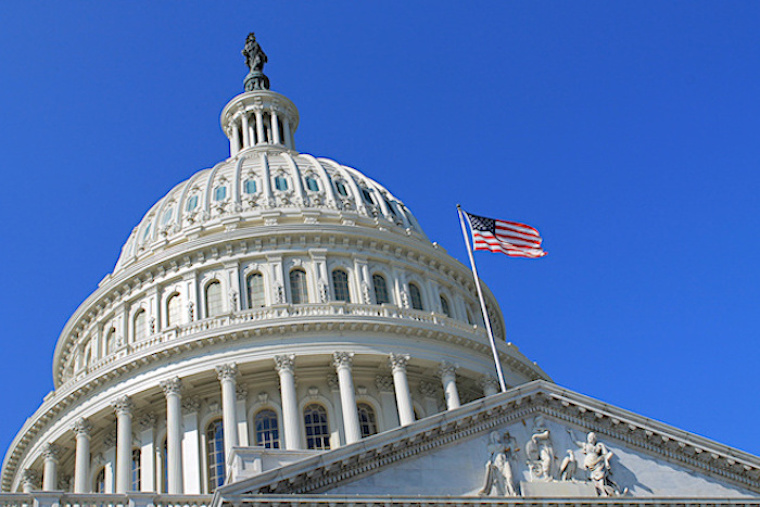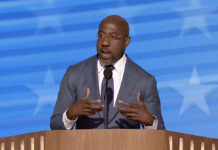
(GA Recorder) – Savannah Republican Rep. Ron Stephens is betting on the promise of an infusion of money into the HOPE Scholarship to help his horse racing bill sprint through the House before an important legislative deadline Monday.
Stephens’ bill would let voters decide whether to amend the state constitution to allow horse racing in Georgia. It would allow three tracks to operate in the state but prohibit other forms of gambling, such as casino gaming, on the sites.
The Legislature is considering other bills to allow betting on sports games in Georgia, although a vote in the House has been delayed. Attorneys disagree on whether sports betting would require a constitutional amendment or not, but there is no debate on whether horse racing does. Georgia’s constitution specifically bans parimutuel betting, the system used by most horse tracks.
Stephens also introduced another bill to allow casino gambling as he has in years past, with little luck.
Stephens introduced the latest version of his horse racing bill to a House committee Tuesday, arguing that race tracks would provide income to Georgia farmers whose fields have yet to recover from the damage caused by 2018’s Hurricane Michael.
“It allows them to get into the industry on the low end and then move up depending on how they purchase and sell horses, so it’s an additional industry,” he said. “It reminds me of somebody that, the wind comes down and blows down their corn farm. Well, they’ve got chickens and hogs as backup.”
Supporters of horse racing have pushed for the state Legislature to legalize race tracks in Georgia for decades. Stephens named his bill the Harry Geisinger Rural Jobs and Growth Act after a late Roswell state representative who was a strong proponent of horse racing.
The latest version of the bill also adds a carrot via Atlanta Democratic Rep. Stacey Evans that would make the state dig deeper into the Georgia Lottery’s reserve fund.
The state is required to keep half of the lottery’s proceeds from the previous year in a fund to pay for HOPE in case of a shortfall. That fund contains more than $1.3 billion, according to the Georgia Budget and Policy Institute. About half, $604 million, is required to be kept for a rainy day under the Georgia Lottery law, but an additional $781 million is considered unrestricted reserves.
“Georgia voters expect lottery revenue to support education, but many lottery dollars sit unused,” said GBPI Senior Policy Analyst Jennifer Lee in an institute report. “Georgia has never had to use its shortfall reserves and has a healthy shortfall reserves requirement. In recent years, the General Assembly chose to use more lottery dollars for pre-K teacher raises. The state could also take advantage of unused lottery dollars to strengthen Georgia’s HOPE programs.”
Evans’ addition aims to do that by drawing down that fund by 10% each year but requiring it to stay between 50% and 60% of the previous year’s lottery proceeds.
Evans said the legislation would bring in more than $200 million the first year and about $130 million the next year. The state has added about $70 million to the unrestricted reserve each year for the last 10 years.
“This state did not approve a lottery just to have a lottery. They approved it for money to go to HOPE and pre-K, so this money should not just be sitting in an account,” Evans said at Tuesday’s meeting.
The plan would likely not provide enough revenue to allow HOPE to pay full tuition as it once did, but it would come close for many of the state’s regional colleges and help close the gap at more expensive schools like the University of Georgia and Georgia Tech, she added.
Under the bill, 10% of the tax money raised through bets on horse races would go to the state’s health care system, where Stephens said it would go to areas affected by hospital closures. Another 5% would go to pre-K and post-secondary education in Georgia.
Some members of the committee were not impressed.
“With all due respect to the author, we can take this and we can wrap it in the memory of a former legislator, we can wrap it up in the HOPE Scholarship, we can talk about all the jobs it’s going to create and we can put a lot of lipstick on this pig, but when we get through with it at the end of the day, we’re going to expand gambling big-time in the state of Georgia,” said Rep. Randy Nix, a Republican from LaGrange. “I believe this is not a good idea.”
The committee is set to take the bill back up for a vote Thursday. Monday is Crossover Day, the deadline for bills to pass from one chamber to the other without complicated legislative maneuvering. Bills that fail to make the deadline are unlikely to become law this year.
Horse racing, sports betting, and legislation pushing the legalization of other forms of gambling could have high hurdles to clear if they are to meet the deadline. The bills face strong opposition from groups opposed to expanding legalized betting on moral and business grounds.
“Taking the moral argument aside against gambling, and how it’s a kind of fraudulent business model, if you’re not even looking at that, just as a business model, it’s not wise,” said Virginia Galloway, regional field director of the Faith and Freedom Coalition. “Their crowds are shrinking; tracks are closing all over the country.
“We’ve been against all the schemes they’ve come up with in the last five or six years to increase poverty in Georgia through gambling, and we’ll continue to stand against those,” she added.







